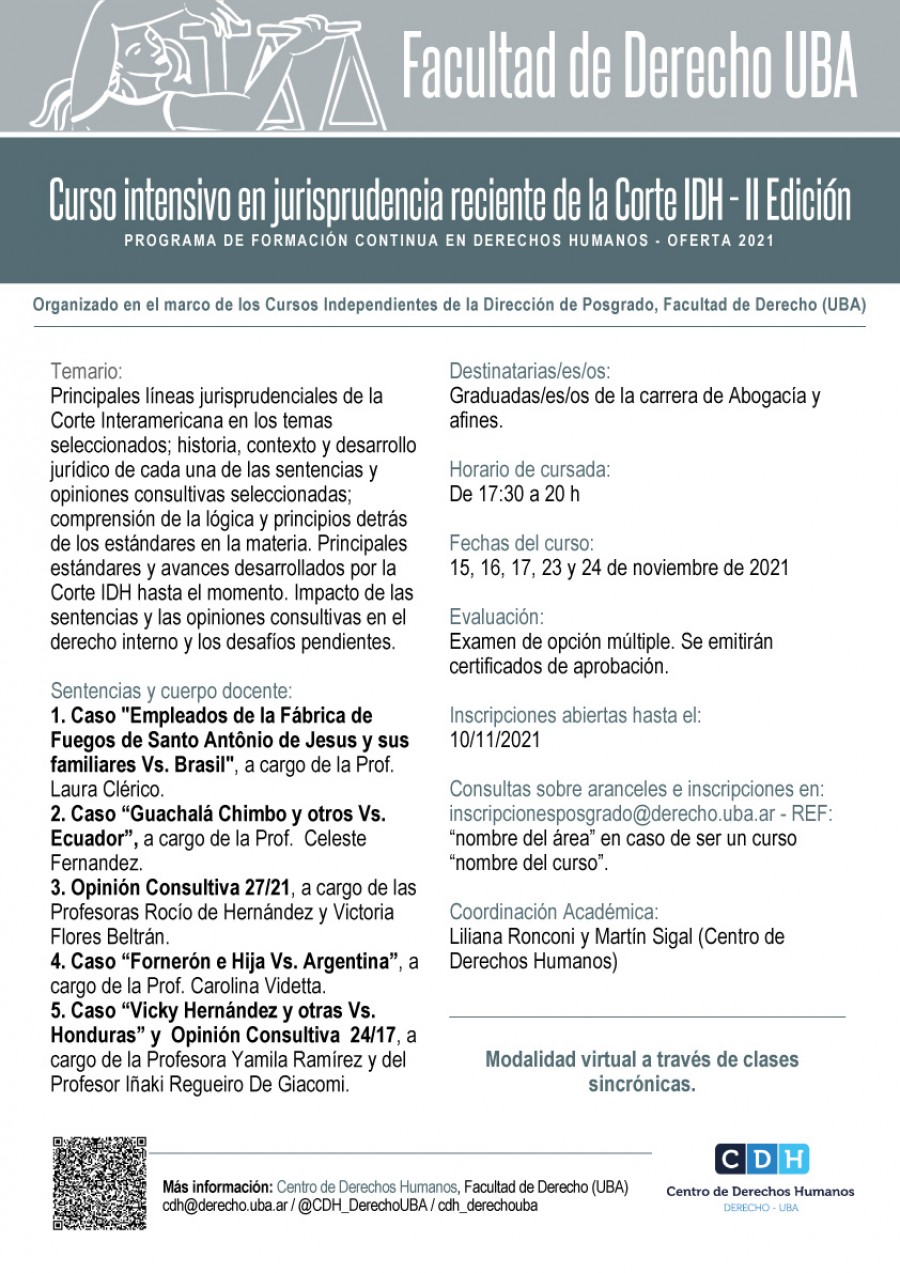

Curso Intensivo en Jurisprudencia reciente de la Corte Interamericana de Derechos Humanos – II Edición
Temario: principales líneas jurisprudenciales de la Corte Interamericana en los temas seleccionados; historia, contexto y desarrollo jurídico de cada una de las sentencias y opiniones consultivas seleccionadas; comprensión de la lógica y principios detrás de los estándares en la materia. Principales estándares y avances desarrollados por la Corte IDH hasta el momento. Impacto de las sentencias y las opiniones consultivas en el derecho interno y los desafíos pendientes.
Para mais informações: http://www.derecho.uba.ar/institucional/deinteres/2021/curso-intensivo-en-jurisprudencia-reciente-de-la-corte-interamericana-de-derechos-humanos-ii-edicion


III Jornadas de Derecho Antártico
para mais informações:
http://www.derecho.uchile.cl/agenda/180319/iii-jornadas-de-derecho-antartico


Webinar “Blockchain y Administración Tributaria” (10 noviembre 2021)
La Mesa Redonda online está dedicada al estudio del concepto y análisis de experiencias basadas en la tecnología blockchain en la Administración tributaria, para así determinar el potencial de esta tecnología en el futuro más próximo en la aplicación de los tributos y en la asistencia al contribuyente.
Para mais informações:
https://derecho.ucm.es/webinar-blockchain-y-administracion-tributaria%E2%80%9D-10-noviembre-2021


CELS Webinar: ‘Regulating for Digital Policy in the EU: A Toolkit Approach’
The European Union has long prioritised policy making to address the development and regulation of the large, complex and dynamic digital sector. Focusing on the regulatory aspect, numerous policy challenges have emerged, ranging between issues of privacy and competition through to behavioural issues for social media and the challenges from the development and wider use of AI. Digital developments present substantial economic and social opportunities but also great risks, many with high policy salience. The risks are such that they threaten the reputation and legitimacy of market actors, in addition to creating policy challenges for governments, alongside social challenges. In sectors where market reputation is threatened by business behaviours and loss of trust, we frequently find market driven governance emerging. In sectors where community interests are threatened by business behaviours we frequently find community-driven regulation. Given the recent history of digital policy, seeking to address old problems, new problems and old problems in new guises, it is surprising that narratives about regulation from government, businesses and community continue to centre state regulation to such a large extent, with relatively little emergence of market-driven or community driven regulatory governance. To a striking extent the emphasis of regulating for digital policy in the EU is largely focused in legislative measures deploying governmental tools rooted in hierarchy. This paper takes a toolkit approach to understanding the range of options not only for how to regulate, but also who regulates within governmental, market and community-based mechanisms, with emergent examples.
Para mais informações:




